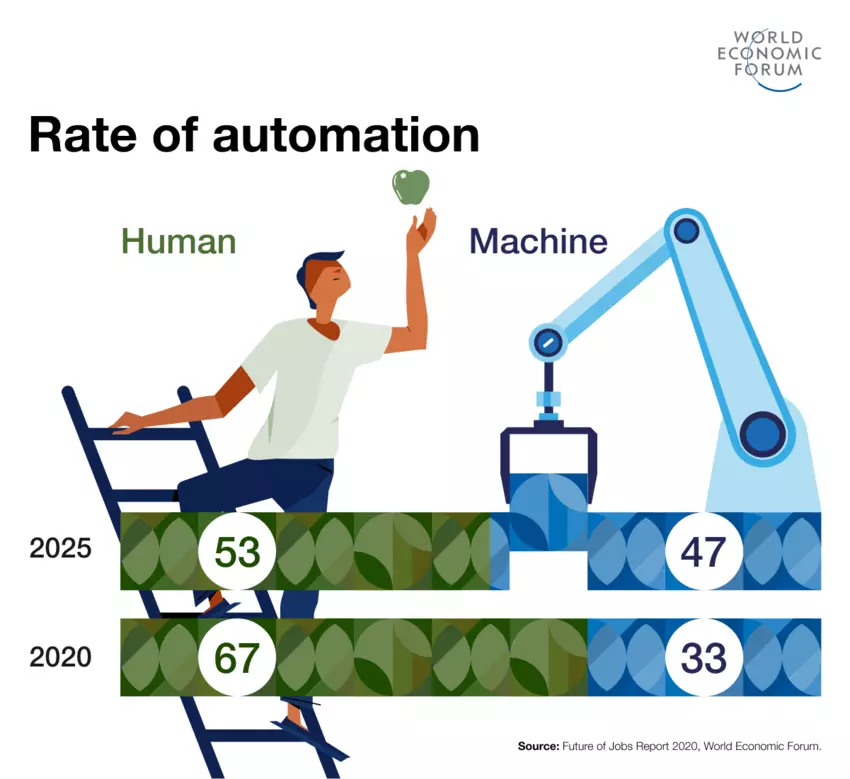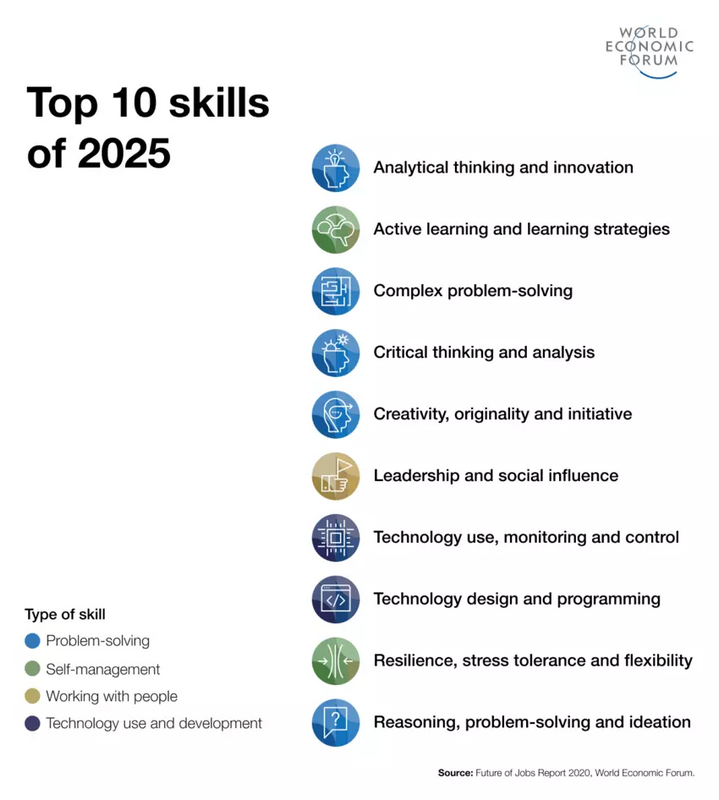85 Million Jobs Will Become Redundant By 2025 Due To Automation & COVID-19 Recession
The COVID-19 pandemic has become the catalyst for the fast growth of automation and digitalisation in the workforce.
A survey conducted by the World Economic Forum (WEF) has found that 85 million jobs will become redundant within the next five years due to the rapid growth in automation triggered by the COVID-19 pandemic
The survey — titled The Future of Jobs Report 2020 — studied 15 industry sectors across 26 advanced and emerging countries.
The research aimed to shed light on how pandemic-related disruptions have accelerated the arrival of the future of work.
"Automation, in tandem with the COVID-19 recession, is creating a 'double disruption' scenario for workers," WEF wrote.
"In addition to the current disruption from the pandemic-induced lockdowns and economic contraction, technological adoption by companies will transform tasks, jobs, and skills by 2025."
50% of employers reported that they will accelerate automation in their businesses, while over 80% are set to expand the digitisation of their work processes.
This will cause some jobs that have been lost within this period to never come back, and those that do will require new ways of working and new skills.
The survey found that for the first time in recent years, the number of jobs gone will be exceeded by the number of future jobs created
The report highlighted that 40% of the current workforce are expected to change their core skills within the next five years in order to stay relevant, and half of the employees will need reskilling.
"Around the globe, companies are already experiencing a shortage of relevant skills for future roles and are investing in reskilling and upskilling their workforce," said WEF.
"It will take on average between two weeks and five months for workers to pick up new skills, allowing them to move into these new roles."
"[Two] third of employers expect to get a return on investment (ROI) in employees reskilling programmes within just one year."
97 million new roles will emerge and it is up to employees to upskill themselves to get ahead of the curve
Employers are expected to offer reskilling and upskilling to over 70% of their employees by 2025.
However, employee engagement in those courses is lagging, with only 42% of employees taking up employer-supported reskilling and upskilling opportunities.
"In the future, we will see the most competitive businesses are the ones that have invested heavily in their human capital – the skills and competencies of their employees," said Saadia Zahidi, the managing director of WEF.
The future job market will have a high demand for positions that deal with technology and data, while repetitive jobs, such as accounting clerks and sales representatives, will become irrelevant
Here are the roles that will be highly sought-after:
1. Data analysts and scientists
2. AI and machine learning specialists
3. Big Data specialists
4. Digital marketing and strategy specialists
5. Process automation specialists
6. Business development professionals
7. Digital transformation specialists
8. Information security analysts
9. Software and application developers
10. Internet of Things specialists
11. Project managers
12. Business services and administration managers
13. Database and network professionals
14. Robotics engineers
15. Strategic advisors
16. Management and organisation analysts
17. Fintech engineers
18. Mechanics and machinery repairers
19. Organisational development specialists
20. Risk management specialists
1. Data entry clerks
2. Administrative and executive secretaries
3. Accounting, bookkeeping, and payroll clerks
4. Accountants and auditors
5. Assembly and factory workers
6. Business services and administration managers
7. Client information and customer service workers
8. General and operations managers
9. Mechanics and machinery repairs
10. Material-recording and stock-keeping clerks
11. Financial analysts
12. Postal service clerks
13. Sales representatives, wholesale and manufacturing, tech and science products
14. Relationship managers
15. Bank tellers and related clerks
16. Door-to-door sales, news, and street vendors
17. Electronic & telecom installers and repairmen
18. Human resources specialists
19. Training & development specialists
20. Construction labourers
Read the full report here.


